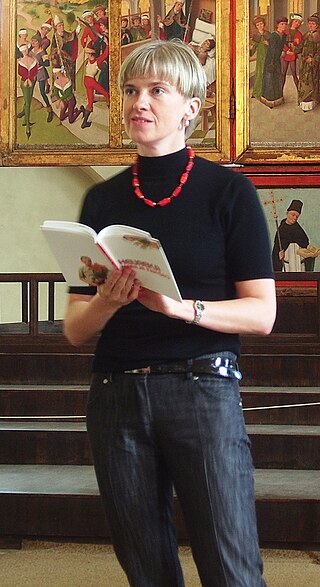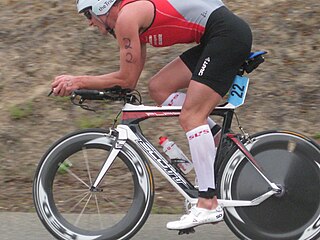Politics in Estonia takes place in a framework of a parliamentary representative democratic republic, whereby the Prime Minister of Estonia is the head of government, and of a multi-party system. Legislative power is vested in the Estonian parliament. Executive power is exercised by the government, which is led by the prime minister. The judiciary is independent of the executive and the legislature. Estonia is a member of the United Nations, the European Union, and NATO.

The national flag of Estonia is a tricolour featuring three equal horizontal bands of blue (top), black (middle), and white (bottom). The flag is called sinimustvalge in Estonian.

The Estonian Centre Party is a populist political party in Estonia. It was founded in 1991 as a direct successor of the Popular Front of Estonia, and it is currently led by Mihhail Kõlvart.

Jüri Ratas is an Estonian politician who served as the prime minister of Estonia from 2016 to 2021 and as the leader of the Centre Party from 2016 to 2023, and the mayor of Tallinn from 2005 to 2007. Ratas was a member of the Centre Party until switching to Isamaa in 2024.

The history of Jews in Estonia starts with reports of the presence of individual Jews in what is now Estonia from as early as the 14th century.

The Estonian Police was the law enforcement agency of Estonia. It was subordinate to the Ministry of the Interior. In 2010, the organization was superseded by the Police and Border Guard Board.
Looming is the oldest literary magazine in Estonia. The headquarters is in Tallinn.

Maarja Kangro is an Estonian poet, short story writer, novelist, essayist, nonfiction writer and librettist.

The Ministry of Culture of Estonia is a Cabinet-level governmental agency in Estonia in charge of conducting and organising the country's cultural affairs and policies.

Eerik-Niiles Kross is an Estonian politician, diplomat, former chief of intelligence and entrepreneur. He is a member of parliament (Riigikogu). During the 1980s, Kross was a prominent figure in the anti-Soviet non-violent resistance movement in Soviet Estonia. After re-independence, in 1991, he joined Estonia's Foreign Ministry. He served as the head of intelligence from 1995 to 2000; and as national security advisor to former President Lennart Meri in 2000 and 2001.

Rein Raud is an Estonian academic and author.

Margus Tsahkna is an Estonian politician, leader of new liberal Estonia 200 party since 19 November 2023, former leader of the conservative Isamaa party, former Minister of Defence in Jüri Ratas' cabinet and Minister of Social Protection in Taavi Rõivas' second cabinet. He was sworn in as Minister of Foreign Affairs in the third cabinet of Kaja Kallas on 17 April 2023.

Indrek Saar is an Estonian actor and politician. He has been the leader of the Social Democratic Party from 2019 to 2022 and the Minister of Culture of Estonia from 2015 to 2019.
Juhan Smuul literary award is an Estonian literary award. The award, from 1972 named after the Estonian writer Juhan Smuul, was given out from 1970 to the beginning of 1990s and again from 1995 using the new name Eesti Kultuurkapital kirjanduse sihtkapitali aastapreemia.

Indrek Ojari is an Estonian actor.

Ain-Alar Juhanson is an Estonian triathlete.

Teet Veispak is an Estonian historian and cultural figure.
Stanislav Netšvolodov is an Estonian sculptor and medal artist. He is a professor at Jagiellonian University.
The Anton Starkopf Fellowship was a fellowship that was awarded by the Cultural Endowment of Tartu and the city of Tartu from 2002 to 2014 to a sculptor or a sculpture project team whose work has significantly enriched the Estonian art world, giving priority to creative projects related to Tartu whenever possible. The fellowship was named after the Estonian sculptor Anton Starkopf (1889–1966).

Piret Saluri is an Estonian translator and diplomat.














